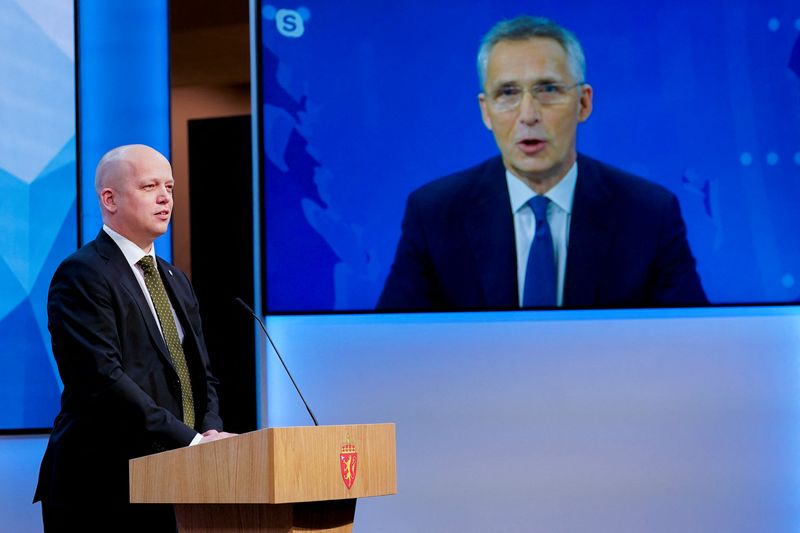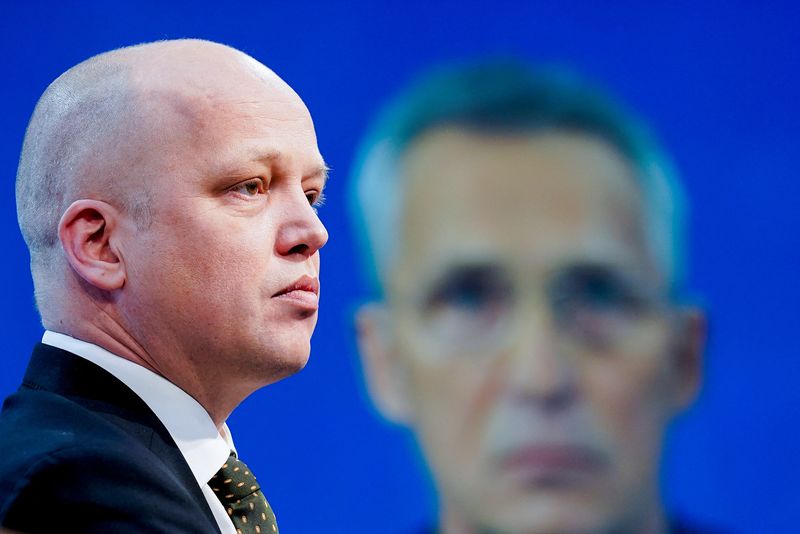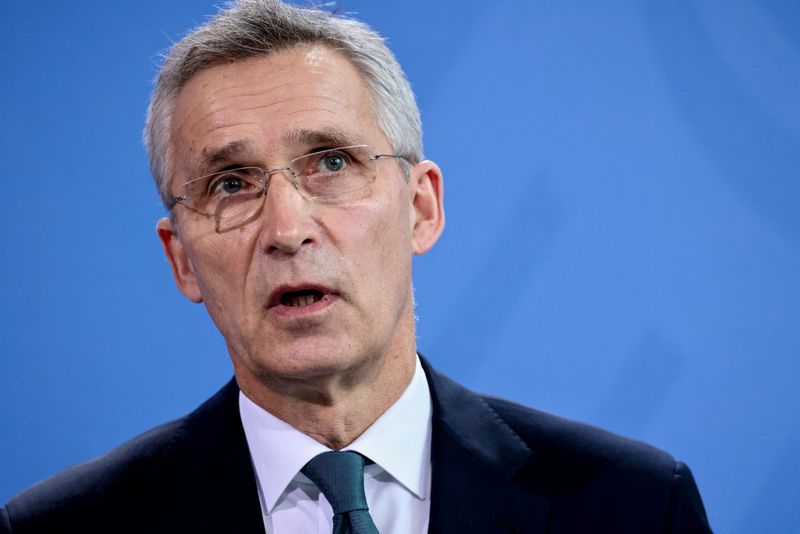By Terje Solsvik and Victoria Klesty
OSLO (Reuters) -NATO Secretary General Jens Stoltenberg will become Norway’s new central bank chief, the government said on Friday, despite opposition worries that the appointment of the former prime minister could weaken Norges Bank’s independence.
While the job is open from March 1, Stoltenberg has said he would first serve out his term at NATO, which expires on Oct. 1. Norges Bank separately said it expects the new governor to take over on or around Dec. 1 this year.
Stoltenberg will be in charge of setting interest rates and manage financial stability as well as overseeing Norway’s sovereign wealth fund, the world’s largest with assets of $1.4 trillion.
“I’ve been concerned with identifying the best central bank governor for Norway, and I’m convinced that this is Jens Stoltenberg,” Finance Minister Trygve Slagsvold Vedum said in a statement.
The appointment ends any speculation that Stoltenberg would stay on at NATO, and the search for a successor must thus now begin in earnest ahead of a meeting of member nation leaders in June this year.
The U.S.-led alliance has been a focus of current tensions between Russia and the West over Ukraine, with Moscow massing troops on its border and seeking assurances that NATO will never admit Ukraine as a member.
“The Secretary General’s term will expire on 1 October 2022. Mr Stoltenberg has made clear that until that time, his focus remains firmly on his NATO responsibilities,” a NATO official said.
Stoltenberg, an economist by training and former leader of Norway’s Labour Party, was Norwegian prime minister from 2000-01 and 2005-13 before becoming NATO chief the following year. He has also been finance minister and energy minister.
The appointment is unlikely to change the course of monetary policy, which to a significant degree relies on staff recommendations and forecasts, as well as consensus-building on the five-member policy committee, economists said.
“We therefore do not think Stoltenberg will be a game change for monetary policy,” JP Morgan said in a note to clients.
Norges Bank has forecast three rate hikes this year and also projects continued tightening in 2023.
Stoltenberg told a news conference he will not comment on Norway’s economic developments until he takes up the new job towards the end of the year. “I will devote my full attention to leading NATO until Oct. 1,” he said.
Ida Wolden Bache, deputy chief of the central bank and Stoltenberg’s main rival for the job, will be the acting governor until Stoltenberg takes over, the government said.
FRIEND OF TODAY’S PRIME MINISTER
Stoltenberg’s application set off a debate in Norway as to whether he was the candidate best suited for the position.
His supporters say he has decades of leadership experience and the political heft to helm the bank, drawing parallels to the 2019 appointment of French lawyer, politician and IMF chief Christine Lagarde as president of the European Central Bank.
They cite Stoltenberg’s role as the man behind the self-imposed rule by which Norwegian governments only spend a small portion of the value of the wealth fund each year for national budgets.
His detractors say his appointment raises questions about the bank’s independence from the government, since Stoltenberg’s party currently rules Norway in coalition with the agrarian Centre Party.
He is a friend of the current prime minister, Jonas Gahr Stoere, who recused himself from the hiring process because of the conflict of interest.
Former finance minister Siv Jensen, in office from 2013 to 2020, last month urged Stoltenberg to withdraw from the process, arguing his appointment would damage the central bank’s credibility and reputation.
“With Stoltenberg as governor there will be strong doubt regarding Norges Bank’s independence,” Jensen of the right-wing Progress Party wrote in a column in business daily Dagens Naeringsliv.
The deputy head of Norway’s main opposition Conservative Party, Tina Bru, had also argued against Stoltenberg’s candidacy, calling it unwise to appoint him.
(Reporting by Terje Solsvik, aditional reporting by Nerijus Adomaitis in Oslo, Robin Emmott and Sabine Siebold in Brussels and Gwladys Fouche in Paris, Editing by Frances Kerry and Mark Heinrich)




























